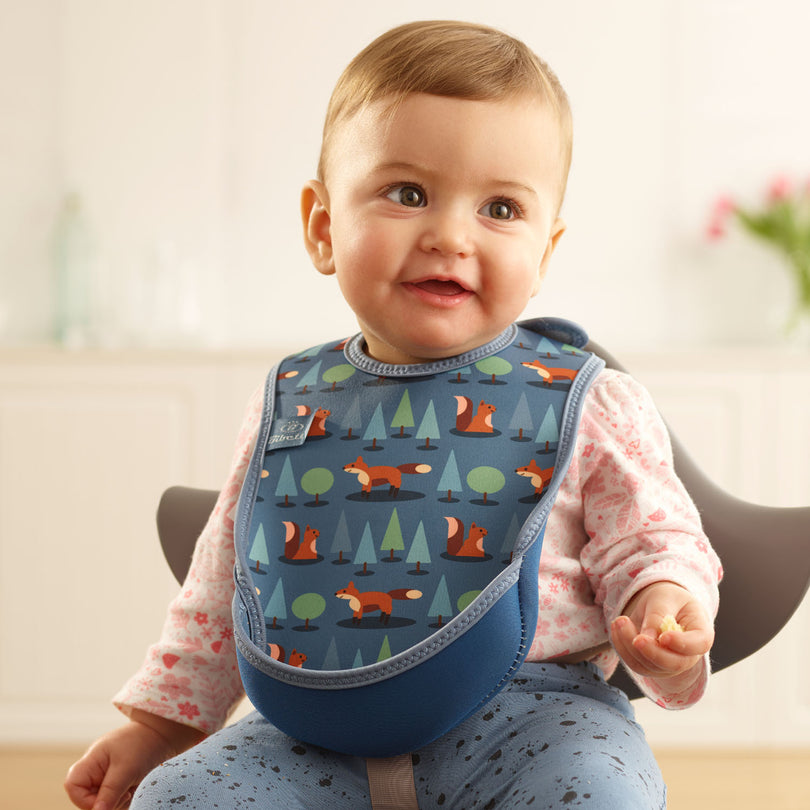Protecting and preserving our environment for future generations is of key importance. The good news is living an eco-friendly lifestyle doesn’t require drastic changes, however. Small changes can make a big difference for our planet. Simply being more aware of waste and recycling and reusing are steps that we can all take.
Here are three key things every family can do to embed environmentally friendly ideas into day-to-day life in the home and make a difference.
Reducing food waste
In the UK alone, it’s been calculated that we waste 6.5 million tonnes of food every year. Not only is this unsustainable to both the food chain, and ignorant of food poverty, but it is also financially wasteful.
The average family could hugely reduce their food bill and waste by making a few simple changes. For example, shopping for fresh food more regularly so food does not go off or planning meals and creating a shopping list to help stop an excess of food.
Weaning is a great chance to reduce food waste for your family by mashing or chopping up leftovers into baby-friendly portions. It will allow you to lessen the amount of food that is thrown away but also encourage your child to eat the same food as you.
Other ways to avoid food waste include:
- Having family meals where everyone eats the same food so leftovers can be kept to a minimum.
- Freezing leftovers portion up into small pots to have a ‘ready’ meal for babies and toddlers, perfect with a quick defrost for hungry tummies.
- Checking dates and using sticky labels and a labelling pen to note when food needs to be used by. This will mean that it ends up on the plate, rather than in the bin.
- Keeping it covered and chilled. Food lasts longer if it is stored correctly. Keep it in the fridge if it is suitable, and make sure it is in a sealed container.
- Reusing in other meals. Food doesn’t have to used up in one meal. The great British roast is an example of this. Cook on a Sunday and use any leftover meat in curries, risottos or sandwiches during the week. Cook creatively and come up with ways to add unused foods to other meals for your little ones.
- Composting it. Vegetable peels, tea bags and used coffee beans can all be composted as a food source for minibeasts or other animals, and to increase the organic content in your soil.
Buying and using food products with less plastic
Every day around 8 million pieces of plastic makes their way into our oceans. We all have a responsibility to reduce the amount of unwanted plastic that ends up in the ocean and landfill.
- When shopping for fruit and veg and bakery goods try using reusable or compostable bags. Pick your own, so you don’t buy a bag of ten apples when you only want two!
- Cut down on ready meals with black plastic containers. These are not recyclable and have to go into landfill.
- Use alternatives to cling film, like beeswax wraps or reusable containers. This is particularly useful when weaning, as small washable pots can be used to store and freeze portions of food.
- And remember, takeaway boxes can have a second chance at life too. Plastic containers used by delivery companies are a cheap way of storing food in lunch boxes, picnics and cupboards. So, stop and think before you throw them out!
Reduce energy consumption!
When it comes to energy wastage, we can all take small steps against climate change.
- Preparing and cooking one meal where the family eat together. If it is not possible to sit down at the same time, food can be quickly re-heated in a microwave.
- One pot cooking such as casseroles help cut down energy use. Slow cookers are great for this.
- Batch cook meals to cook food for two or more meals at the same time saving time and energy.
- Don’t overcook food, especially vegetables in order to keep their vitamins.
- Make sure that fridges and freezers are set to the right temperature so that they are working efficiently. This is particularly important for weaning anyway, to ensure that food is stored safely.
Try one of our Wipeezee wipeclean weaning bibs to reduce the mess after feeding. This not only reduces the number of washing cycles each week but also means less wear and tear to extend the life of clothes.
These are just a few simple changes you can make to help you create a more sustainable food waste scheme at home. If you are interested in following an eco-friendlier lifestyle, always pay attention to food and clothing labels, to make the most informed choices.





